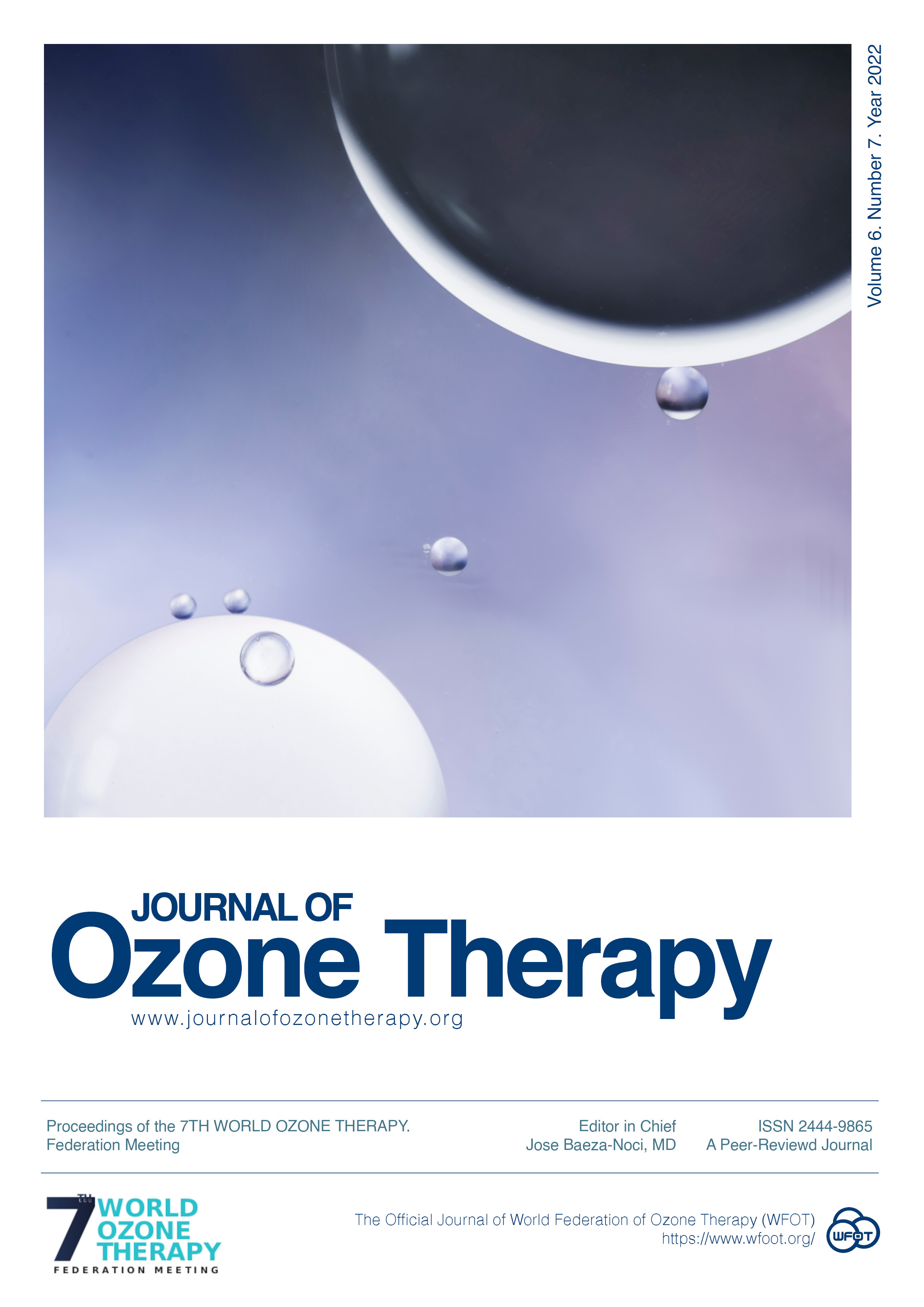Ozone applications in veterinary oncology
DOI:
https://doi.org/10.7203/jo3t.6.7.2022.25996 Abstract
Abstract
PURPOSE.
To evaluate the clinical improvement of 6 patients –three dogs, two cats and a Panthera leo krugerii diagnosed with neoplasic patologies treated with ozonetherapy under adjusted protocols for each patient.
CASE PRESENTATION
Six patients were presented to veterinary consultation for the diagnose of different injuries using citology, blood examination and imagenology in some cases. According to the diagnose (a female dog with an ulcerated mammary adenocarcinoma, another with vaginal adenocarcinoma, a male dog with basal cells tumour in the scrotum, a male cat with low grade linfoma and hepatic injury, another male cat with squamous cells carcinoma (SCC) and a male white lion with a melanoma in the lower eyelid) the ozone protocol was established using combinations of local infiltration, topic instillation of ozonized oil, major and minor autohemotherapy, ozonized drinking water, rectal insuflations and bagging technicque. The results showed an improvement of general state of the patients: increase of appetite and activity in all of them, decrease size of tumour in two patients, healing of ulcers, total remission of the basal cells tumour. Ozone therapy is the elective linfoma treatment due to the hepatic injury in this patient, who remains stable in terms of linfoma but his hepatic injury presents evidence of improving. In patient 6 –the lion with melanoma- zookeepers report absence of exudate and pruritus.
DISCUSSION.
There are not enough reports of the use of ozone in oncological veterinary patients (1) but there are many preclinical papers and human case reports about ozone for cancer treament (2,3,4,5).
CONCLUSION.
Based on that, it is posible to conclude that established protocols were capable of improve quality of life of the patients avoiding methastasic process and tumoral growth.
 Downloads
Downloads
Downloads
Published
How to Cite
-
Abstract587
-
PDF234
Issue
Section
License
Journal of Ozone Therapy applies the Creative Commons Attribution-NonCommercial 4.0 International License (CC BY NC 4.0) license to works we publish.
Under this license, authors retain ownership of the copyright for their content, but allow anyone to download, reuse, reprint, modify, distribute and/or copy the content as long as the original authors and source are cited. No permission is required from the authors or the publishers.
You may not use the material for commercial purposes.
Appropriate attribution can be provided by simply citing the original article, provide a link to the license, and indicate if changes were made.
You may do so in any reasonable manner, but not in any way that suggests the licensor endorses you or your use.




